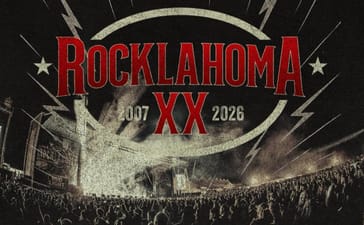Just like musicians crooned over the Summer of 1969 for many years after, chances are that they’ll also be telling tales of COVID-19 for a long time after it vanishes from headlines (if ever). There’s an angle to unpack here that only a singer/songwriter could grasp, so that’s probably a good thing, albeit running the risk of thematically crowding the market. But when we look at ERRA’s self-titled record, released through UNFD on Friday, 19th March, fans can expect some reprieve – ERRA is not of, or by, any sort of lockdown.
Speaking with Blunt Magazine, vocalist/guitarist Jesse Cash explains that the infamous early March 2020 acceptance by world leaders that this was a crisis happened on the last day of their studio sessions, as luck would have it. As such, “the pandemic didn’t colour the record” Jesse admits, though there is a caveat: “But certain things on the record feel relevant in the pandemic.”
Indeed, many creatives have said the same. Swaths of those cursed with the duty of surmising the lived experience rather than simply expediting it seemed to have noticed a looming dread – some might call it a slow, spreading infection. Jesse pushes back at the idea.
“I didn’t have a looming sense of dread,” he argues. However, he adds that “stuff we wrote the record about is still very much relevant in 2020.” In particular, “‘House of Glass’ feels pretty relevant to what was happening to the election and division.”
Jesse then points to the unexpected relevance of single and album track ‘Divisionary’: “It’s a tongue in cheek song about cell phones and just being addicted to the internet and technology. It’s like some of the lyrics were borderline goofy. ‘Small black screens are your only God now’.”
“I wrote it to feel like a Black Mirror episode because that’s a pretty tongue in cheek show. That kind of message, I think, correlates with the theme of the record and then 2020 in itself and as far as being present. That’s an important thing always, but especially at a time like this.”
Suffice to say, a lived experience through a global pandemic won’t be the babel fish needed to truly get the most out of this album. As we would learn from Jesse, for fans to sink their teeth further into ERRA, they can pick up a book. After all, it’s not just the world that belongs to readers, but the new ERRA album too.
Jesse explains that during the mandated downtime of 2020, reading became a big part of his life. “It was kind of my first time getting introduced to…Oh God, I don’t want to be cheesy, but like the Eckhart Tolle.”
For more ways to bring ERRA to life, fans need to look no further than the list of reading material Jesse churned through over the past 12 months. Plenty of Stephen King, Cormac McCarthy, Haruki Murakami and others; to get under the skin of ERRA, start here.
“I do wish more people did read,” Jesse says. “I don’t think that I’m alone in the idea that it brings so much value to your life and your brain. It just improves everything. Reading Stephen King heightens my emotional intelligence because he just cares about his characters. And then Eckhart Tolle, it’s more the bigger picture. And my favourite author is Cormac McCarthy and Cormac McCarthy’s books honestly coached me on, quote unquote, being a man.”
“I can read this whole book and I get a lot of inspiration from words and I’ll highlight stuff or write stuff down and that I think has made my lyrics better. I just read Kafka on the Shore by Haruki Murakami. The narrator whose name is Kafka, describes a library as, what is it? It’s like all ideas that have ever existed, just silently resting.”
The results speak for themselves, with the band deciding to dub their latest and greatest as self-titled, which is quite a statement. Or, as Jesse puts it, “kind of a flex” more than anything else.
Before fans feel a lump in their throat, rest assured, ERRA haven’t flipped the script for their new outing. Within 5 seconds of the album’s blistering opener ‘Snowblood’, it’s obvious that they’ve stayed true to their sonic alchemy of progressive metalcore and EDM elements, delicately balancing between duelling vocalists. ‘Snowblood’ makes way for mosh-anthem-in-waiting ‘Gungrave’ as the album goes on to spread its wings.
The smoke and mirrors clear for ‘Vanish Canvas’, a soaring offering from the band that sees the clean vocals rise high atop the cyclonic instrumentals. The gentle album closer ‘Memory Fiction’, made all the more striking following the wall of brutality that is ‘Remnant’, leaves us to drift off with our own thoughts up in the ether.
Looking back at the final product, Jesse adds “We just think that it feels a lot stronger than the last record that we put out. I hear this new record and it feels like such a step beyond. “
“I think about this record, like it feels like, I don’t know, it feels like the one, what’s the term? ‘Magnum Opus’, you probably should never say that about your own music and I kind of don’t want to, I don’t know if it is, but in my head that’s how much I think this record stands out.”









